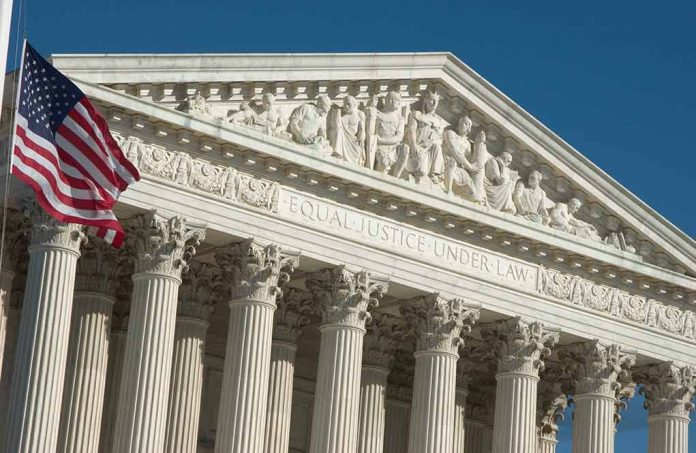
(RepublicanPress.org) – In May, former President Donald Trump was convicted of 34 felony counts of falsifying business records in a New York court of law. He faces sentencing on July 11. The former US leader is also facing other charges, including the documents case in Florida, the RICO case in Georgia, and the January 6 case in Washington, DC. All the while, the Supreme Court was deciding whether or not presidents have absolute immunity from prosecution.
On July 1, the Supreme Court ruled on the case of Trump v. United States, finding that presidents have limited immunity for acts done while in office. The opinion, written by Chief Justice Roberts, held that a former president has absolute immunity from criminal prosecution for actions taken within his or her constitutional authority. The ruling also noted that former presidents enjoy presumptive immunity for all official acts but no immunity for unofficial acts. Roberts was joined by Justices Thomas, Alito, Gorsuch, and Kavanaugh. While Justice Amy Coney Barrett also sided with the five conservative justices, she differed on one point, writing her own concurring opinion. Justices Kagan and Jackson joined Justice Sonya Sotomayor in her scathing dissent.
Trump reacted to the ruling in all caps on his social media platform, stating the SCOTUS opinion was a “big win for our Constitution and democracy.” However, President Joe Biden publicly agreed with Justice Sotomayor’s dissent, stating the court did a “terrible disservice” to the American people. The former president already submitted a request to the New York court to have his conviction overturned. Trump claimed the case violated the “presidential immunity doctrine.” The prosecutors for that case didn’t oppose a delay in sentencing, asking the judge for a July 24 deadline to respond to the defense.
The ruling sent the January 6 case back to US District Judge Tanya Chutkan to determine which indictments involve official acts and which can proceed.
Copyright 2024, RepublicanPress.org














